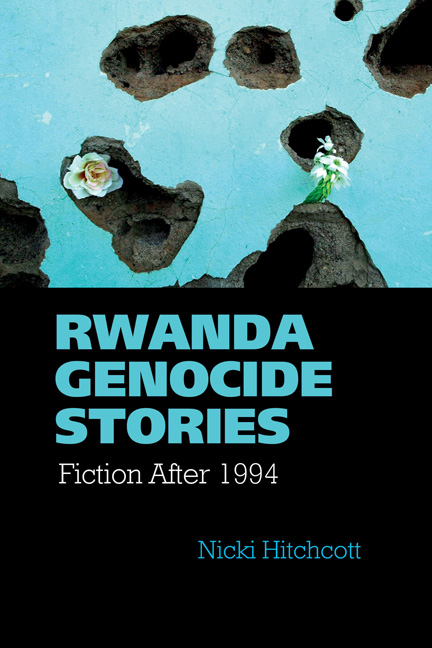Conclusion
Summary
When visitors come to the end of the permanent exhibition at the Murambi genocide memorial, a sign on the wall asks the question, ‘Now that you have heard the story of Murambi, what is in your heart and what are you moved to do?’ It is not enough, the sign suggests, simply to receive the story. Visitors are encouraged to reflect on what they have heard and to think about their own role in commemorating the genocide.
Participation is a key feature of commemorative strategies in Rwanda. What this book has shown is that encouraging participation is also a key feature of fictional responses to the genocide. Through analysis of the figures of tourists, witnesses, survivors, victims and perpetrators, I have identified the ways in which readers are compelled to re–evaluate their knowledge of Rwanda and take an active role in commemorative processes: as self–critical tourists, ethical witnesses, judges or culpable bystanders, we are encouraged to acknowledge and assume our own responsibility for what happened in 1994. While other critics have identified the reader's role in genocide narratives as that of an indirect witness (Bornand; Dauge–Roth, 2010), this book has emphasized the ways in which readers become implicated further still in stories about what happened in Rwanda. Whatever the position created for the reader by the fictional text, she is always invited to play the role of an active and engaged participant in remembering and understanding the genocide. The ethical dilemmas facing authors writing about Rwanda, particularly those writing as outsiders, encourage readers and critics to consider and reflect upon our own subject positions and require us to take responsibility.
The question of responsibility is at the root of all the fictional responses to the genocide. The Fest'Africa writers’ sense of a moral duty is made explicit in the title of their project: they wrote about Rwanda because they felt they had a duty to remember. This duty is not, however, limited to the ‘Ecrire par devoir de mémoire’ group; rather, it is what links all the novels and stories focused on the events of 1994. This concluding chapter will draw together what previous chapters suggest are the distinctive characteristics of Rwanda genocide fiction in an attempt to provide a working definition of what Norridge pertinently describes as ‘an evolving generic space’ (2011b: 256).
- Type
- Chapter
- Information
- Rwanda Genocide StoriesFiction After 1994, pp. 191 - 204Publisher: Liverpool University PressPrint publication year: 2015



